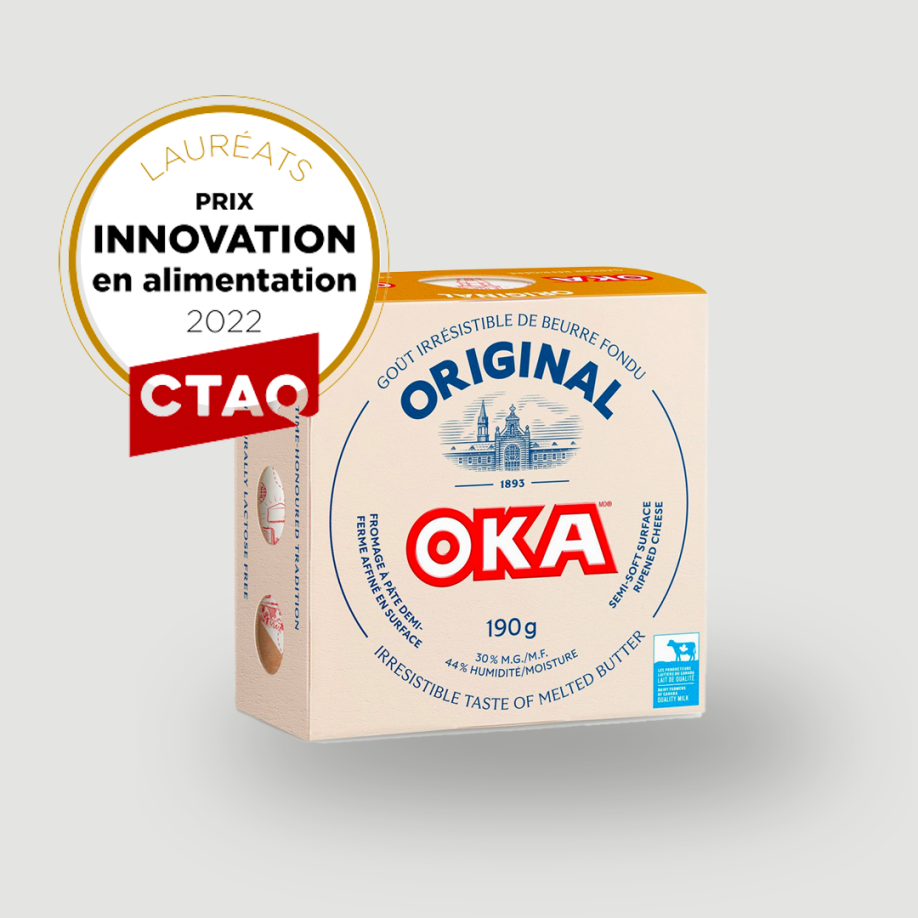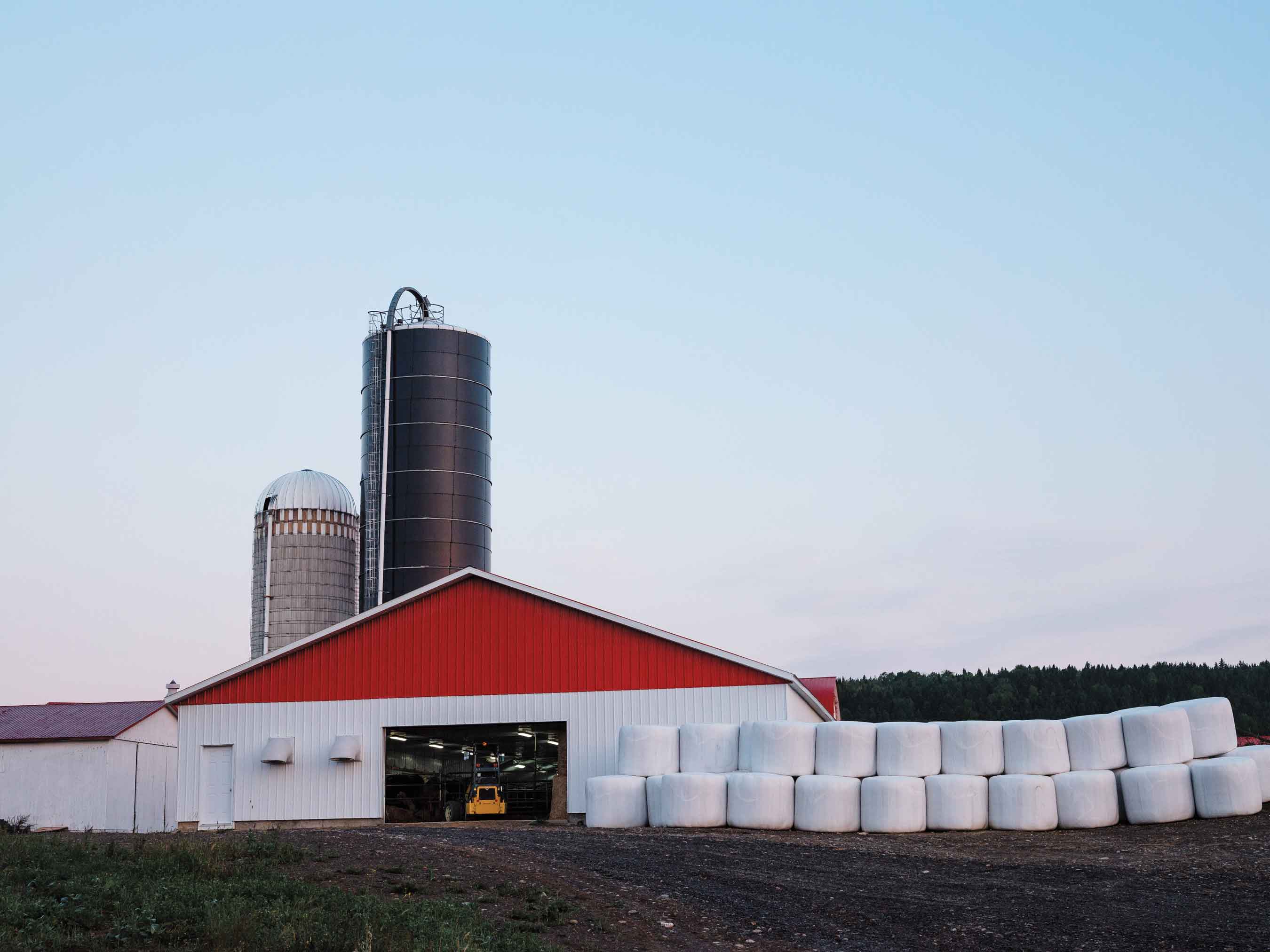OKA’s new packaging wins award

We’ve only just launched the new packaging for our beloved OKA cheese and it’s already getting accolades! On November 17, our packaging won the CTAQ’s (Conseil de la transformation alimentaire du Québec) Prix Innovation en alimentation 2022 (2022 Award for Innovation in the Food Industry) in the packaging category.
This award is a testament to the calibre of our Agropur team, who set out months ago to create a fresh OKA cheese package that is a part of Agropur’s quest to reduce its environmental footprint.
In response to consumer trends and our desire to reduce overpackaging, we designed the new box to be 100% recyclable and to use 43% less cardboard, saving 40,000 kg of packaging per year. What’s more, the side openings help the cheese to age while in the cardboard, so that it can continue to develop its exceptional flavours.
The side slits also offer a peek at some of the illustrations on the wrapper depicting the OKA legend. The many illustrations by Québec artist Martin Côté contain references and symbols from the brand’s rich history.
To help reduce food waste, we will be launching a re-sealable sticker in 2023, so that consumers can refrigerate their product in the wrapper for even longer! This new packaging is part of a repositioning strategy for OKA cheese that aims to elevate the brand’s image and position it as a must-have for every cheese board.
About OKA cheese
OKA cheese, created and sold by Trappist monks from Oka, Québec, is one of Canada’s very first cheeses, dating back to the late 19th century. In 1981, the Trappist master cheesemakers shared their knowledge with Agropur Cooperative’s master cheesemakers to guarantee the good taste of OKA cheese and its rind! More than a century after it was created, it continues to be one of the most popular cheeses in Québec.
NEXT NEWS
Cooperatives: Stronger amid crises
Researcher Anne-Marie Merrien looked at the impact of the first 18 months of the pandemic on Canadian co-ops and mutuals. She concluded that co-ops were more stable and supportive during this period.








